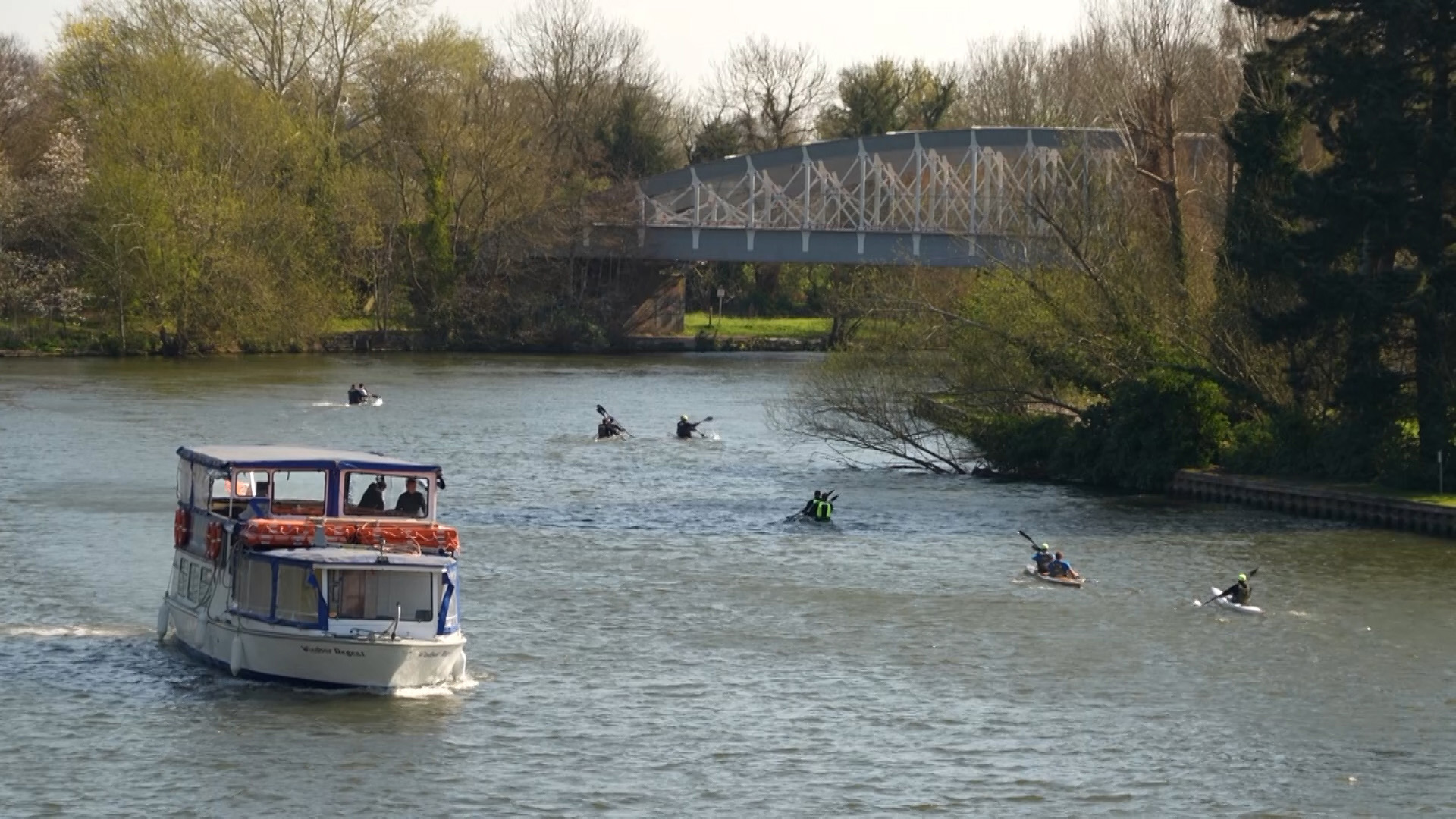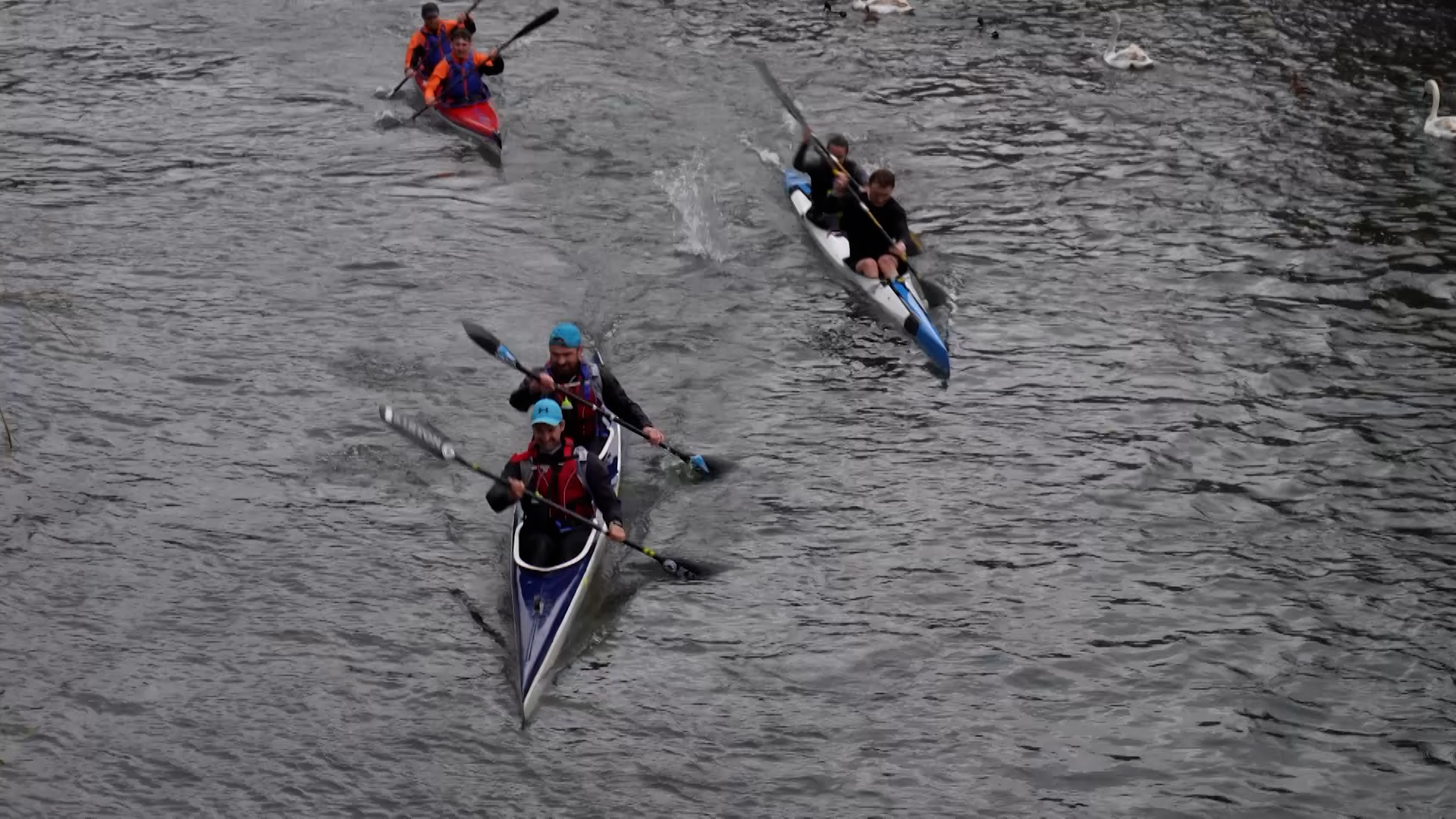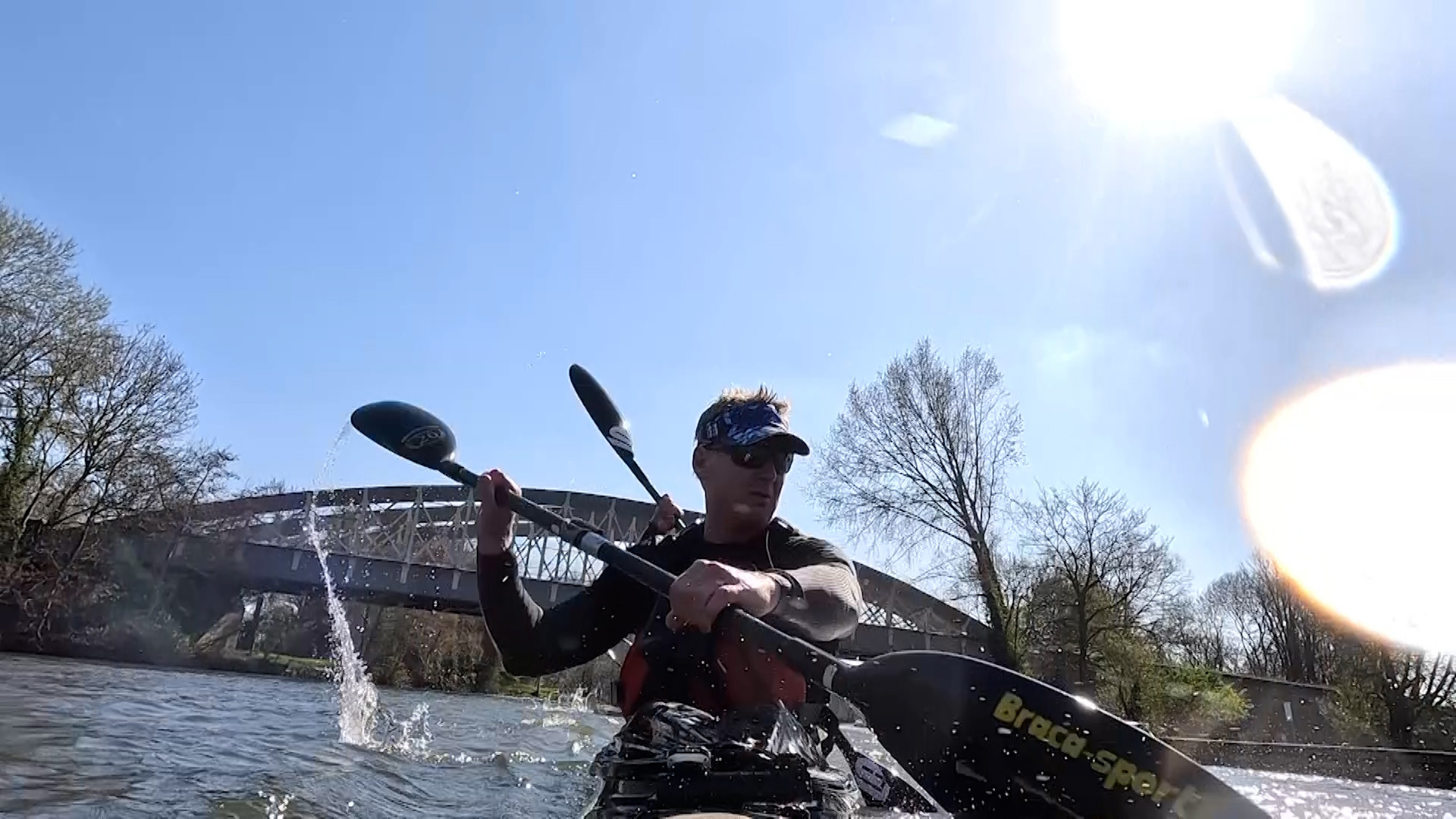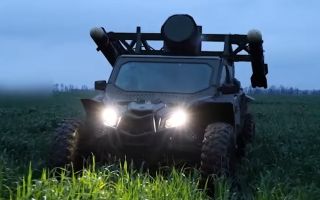Can the military beat civilians in the world's longest non-stop canoe race?
The Devizes to Westminster, commonly known as the DW, is the world's longest non-stop canoe race.
The journey is 125 miles long, and the crews must navigate 77 locks from sleepy Devizes in Wiltshire to the heart of the capital.
There is a deep-seated rivalry between military and civilian crews, but this year history may be about to take a turn.
BFBS Forces News spoke to members of the Royal Marines team before they set off to paddle down the water ultra-marathon on 19 April.
Lance Corporal Nutty Edwards said he likes the peace when he is paddling.
"To be honest with you, I quite enjoy the silence," he said. "You really get into it and just think about paddling and getting each stroke rate as good as you can get it.
"All that matters is getting to Westminster, both of you together."
He described the race as tough. "It's up there!" he said. "It's a great race, every bootneck should do it at some point in their career."
The history of the race and rule changes
In 1948, two 17-year-old Scouts first attempted the voyage, finishing it in 89 hours and 50 minutes.
This has come down year on year until a new course record was set in 2023 of 15 hours, 19 minutes and 35 seconds.
Military crews dominated the race for the first two decades of its existence.
It used to be that teams had to be entirely self-sufficient, taking all food and supplies with them in the boat.
Rumour has it that the military, who approached the DW like an operational mission with survival kit and radios, were particularly good at re-supplying paddlers at clandestine spots out of sight of the officials.
In 1971, the rules changed to allow crews to receive support from the sides. Suspiciously – since then – the military have rather lost their edge!
Nowadays, the race attracts some of Britain's top professional athletes.
But this year there are a huge number of teams from the services entering, including around 20 paddlers from the Royal Marines, and they think they may be able to take on the civvie athletes once again.

Paddling in the dark
Major Lee Maddocks, who is part of the Royal Marines Kayak Association, said the start feels like any other canoe race.
However, when the sun goes down the competitors must paddle in the dark.
Maj Maddocks said that the military canoeists do not have to race at night often.
"It becomes a battle against yourself, just [the] willpower of you and your partner doing the best you can through the night," he said.
Maj Richardson agreed, adding: "There's a point not long after midnight where your body just expects to sleep, and that's when you go through [something]… called zombie land," he said.
"When you're actually just paddling, and you [are] genuinely sleeping."

Support crews and food
At this point, a good support crew becomes useful to a pair furiously stroking the water, inching further towards the finish line at Barn Elms Boat House.
Support crews carry food, drink, extra clothing and a replacement kit to help the racers.
The support is restricted to two supporters for every paddler and two cars per boat, according to the Devizes to Westminster competition.
Major Will Richardson revealed that having a satisfactory support crew helps when you enter zombie land, as they are needed to get food into your body.
"It all relies on having a really good support crew that are literally ramming food down your face," he said.
"Food-boarding I've heard it called before, to keep you supported throughout the night."

Podium challenge
Maj Maddocks came outside the podium places in fourth on his last attempt, and he has set his sights high.
"We're going to put a race boat team out, which will compete for the service trophy," he said.
"We'll try and see if we can put the Royal Marines Kayak Association in amongst the big canoe clubs like Richmond, Elmbridge, and the traditional canoe clubs that you see."
He commented that there are some particularly good civilian paddlers in the mixed crews this year.
Maj Maddocks told BFBS Forces News that it will be a "tough task" to get onto the podium.
Nevertheless, he is hoping that his military strength may help him in the final stretches of the race.









